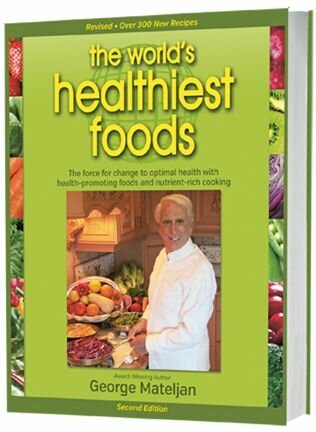 The World's Healthiest Foods are health-promoting foods that can change your life.
The World's Healthiest Foods are health-promoting foods that can change your life.
Try our exciting new WHFoods Meal Plan.
 The World's Healthiest Foods are health-promoting foods that can change your life.
The World's Healthiest Foods are health-promoting foods that can change your life.
Try our exciting new WHFoods Meal Plan.
Yes, intake of vitamin B12 can often be a problem in a vegetarian diet. For example, in the National Health and Nutrition Examination Survey (NHANES) from 2003-2010, only 55% of vegetarians were determined to meet their daily B12 requirements, in comparison to 82% of non-vegetarians.
The issue of vitamin B12 from plant foods versus animal foods is confusing, since no plants or animals are capable of making vitamin B12. Microorganisms—and especially bacteria and fungi—are the only organisms definitively known to produce vitamin B12. However, even though land animals and fish cannot make vitamin B12 in their cells, they are often able to save up B12 produced by bacteria and concentrate it in their cells. By storing B12 in their cells, many land animal foods and seafoods become rich in B12, even though they cannot make this vitamin on their own. All but one of our WHFoods ranked sources of B12 come from animal foods or fish. (The single exception here is crimini mushrooms, which fall into the fungus category as discussed further below.)
There has been longstanding debate over algal production of B12, which includes debate over the potential role of sea vegetables to provide B12 (as well as debate over dietary supplements like spirulina). However, we interpret the research in this area to show that sea vegetables cannot be counted on for B12 support, not because there is no possibility of B12 production in sea vegetables, but because the form of B12 in sea vegetables is not a usable vitamin form.
While fresh plant foods cannot be counted on to provide you with B12, the fermentation of plant foods can change this situation. The use of B12-producing bacteria and/or fungi can add vitamin B12 to plant foods. Our website profiles for 4 ounces of tempeh (0.16 micrograms of B12) and one tablespoon of miso (0.01 micrograms of B12) are examples of traditionally fermented foods that get their B12 content in this way. But as you can see, these amounts of B12 are still quite small, with tempeh providing about 6-7% of the recommended daily amount and miso providing less than 1%.
In sharp contrast, a single serving of any food on the following animal food list will provide you with 100% of your daily B12: sardines, salmon, tuna, cod, lamb, or scallops. And you can get over 50% with a single serving of beef or shrimp; about one-third of the daily amount from one cup of yogurt; and between 10-25% from one serving of cheese, chicken, turkey, eggs, or cow's milk.
Given the above percentages, you can see how pesco-vegetarians (who consume fish along with plant foods), lacto-ovo vegetarians (who consume dairy foods and eggs along with plant foods), and "semi-vegetarians" who consume mostly plant foods yet intersperse their diets with various animal foods have a better chance of reaching the B12 requirements than strict vegans who consume plant foods exclusively. For this reason, most healthcare providers—including most nutritionists—currently recommend that persons who exclusively consume plant foods take steps to ensure their B12 nourishment by adding foods fortified with B12 or B12-containing supplements to their daily routine. As a general rule, we support this approach.
What would be an example of a nutritionally fortified food containing B12? A great example here would be nutritional yeast grown on a molasses medium. One widely available brand has more than twice the Dietary Reference Intake (DRI) for B12 in one and one-half tablespoons of yeast. However, not all nutritional yeasts are rich in vitamin B12, and you will need to check labels for details.
As described earlier, bacteria and other microorganisms are the only life forms definitively known to produce B12. Interestingly, however, recent research studies have shown that bacteria capable of producing B12 can live inside our human intestinal tract. (One example of a bacterium known to produce B12 and also able to colonize parts of our digestive tract is Propionibacterium shermanii.) Furthermore, it seems likely that B12-producing bacteria are able reside in the very last segment of our small intestine known as the terminal ileum. This location in our digestive tract is especially important for vitamin B12 nourishment since it is the primary site for B12 absorption. In this last segment of our small intestine, however, the total numbers of bacteria are extremely limited. So exactly how much B12 contribution could potentially be made by B12-producing bacteria in this digestive tract location remains an open question. At present, we cannot find any justification whatsoever for relying on bacterial production of B12 in our intestines, and we do not recommend that you adopt this thinking in formulation of your meal plan. As explained previously in this article, we recommend intake of B12-fortified foods and/or B12 supplements by anyone following a strict vegan meal plan. However, we also don't pretend to know what future research studies might show, and it will be interesting to see if those studies eventually prompt us to re-think our approach to B12, especially with respect to individuals who do not consume any animal foods.
For more information on the subject of vegetarian diets, please see our overview article "A Practical Look at Vegetarian Diets" as well as the following Q+As.
To see the research articles we reviewed in the writing of these articles, see here.

Everything you want to know about healthy eating and cooking from our new book.

Order this Incredible 2nd Edition at the same low price of $39.95 and also get 2 FREE gifts valued at $51.95. Read more